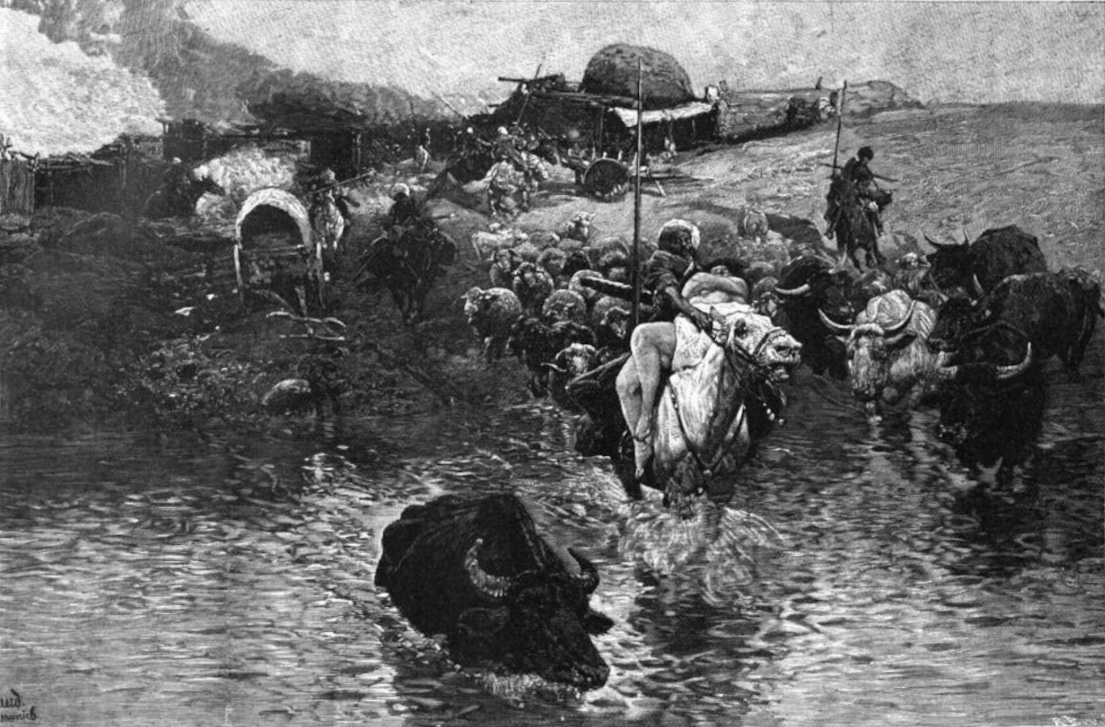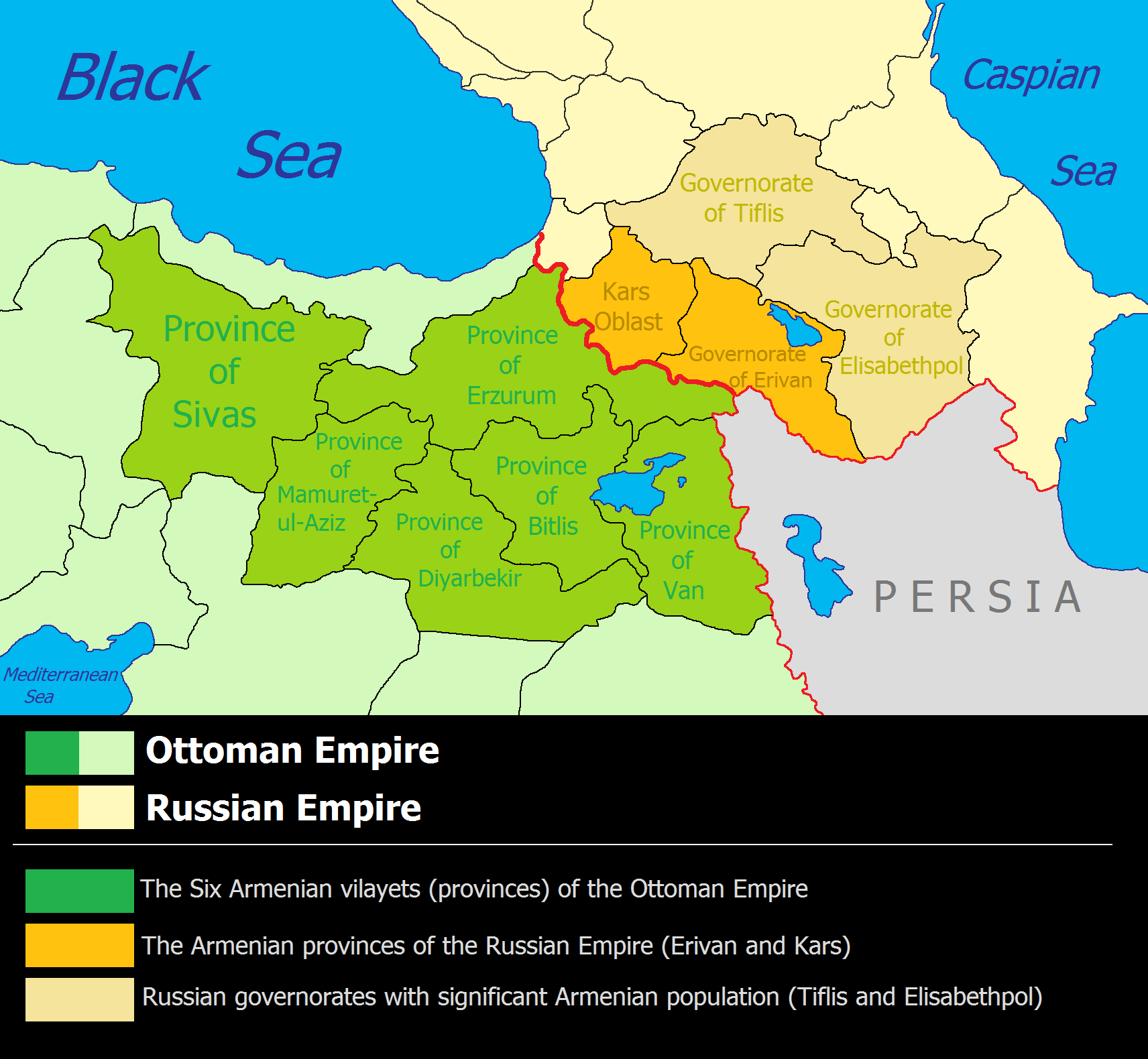|
Edward Joris
Edward Joris (1876–1957) was a Belgian Flemish anarchist who was involved in the 1905 bombing in Constantinople known as the Yıldız assassination attempt, which was directed against the Sultan Abdul Hamid II as a retribution for the Hamidian massacres. Through his anarchism, he took an interest in anticolonialism and became involved in the attempt with his wife, Anna Nellens, after meeting two leaders of the Armenian Revolutionary Federation (ARF), Vramshabouh Kendirian and one of the founders of the organization, Christapor Mikaelian. He was sentenced to death, which triggered a significant protest movement in Belgium, involving both the Walloons and the Flemish, drawing comparisons to the Dreyfus Affair in France, with numerous political interventions advocating for his release. Supporters of his release were referred to as "Jorisards" and, while connected to the French Dreyfusards, they managed to secure his release by exerting pressure on both French and Belgian author ... [...More Info...] [...Related Items...] OR: [Wikipedia] [Google] [Baidu] |
Belgians
Belgians ( ; ; ) are people identified with the Kingdom of Belgium, a federal state in Western Europe. As Belgium is a multinational state, this connection may be residential, legal, historical, or cultural rather than ethnic. The majority of Belgians, however, belong to two distinct linguistic groups or ''communities'' (; ) native to the country, i.e. its historical regions: Flemings in Flanders, who speak Dutch, West Flemish and Limburgish; and Walloons in Wallonia, who speak French or Walloon. There is also a substantial Belgian diaspora, which has settled primarily in the United States, Canada, France, and the Netherlands. Etymology The 1830 revolution led to the establishment of an independent country under a provisional government and a national congress. The name "Belgium" was adopted for the country, the word being derived from '' Gallia Belgica'', a Roman province in the northernmost part of Gaul that, before Roman invasion in 100 BC, was inhabi ... [...More Info...] [...Related Items...] OR: [Wikipedia] [Google] [Baidu] |
Antwerp
Antwerp (; ; ) is a City status in Belgium, city and a Municipalities of Belgium, municipality in the Flemish Region of Belgium. It is the capital and largest city of Antwerp Province, and the third-largest city in Belgium by area at , after Tournai and Couvin. With a population of 565,039, it is the List of most populous municipalities in Belgium, most populous municipality in Belgium, and with a metropolitan population of over 1.2 million people, the country's Metropolitan areas in Belgium, second-largest metropolitan area after Brussels. Definitions of metropolitan areas in Belgium. Flowing through Antwerp is the river Scheldt. Antwerp is linked to the North Sea by the river's Western Scheldt, Westerschelde estuary. It is about north of Brussels, and about south of the Netherlands, Dutch border. The Port of Antwerp is one of the biggest in the world, ranking second in Europe after Rotterdam and List of world's busiest container ports, within the top 20 globally. The city ... [...More Info...] [...Related Items...] OR: [Wikipedia] [Google] [Baidu] |
Sophie Areshian
Sophie Areshian (; 1881, in Tbilisi – 1971, in Montreal), also known by her pseudonym of Rubina, was an Armenian revolutionary and fedayi. She joined the Armenian Revolutionary Federation (ARF) after meeting several leaders of the organization in Baku, she became politically aligned with the far left under their influence. She quickly earned the trust and friendship of Christapor Mikaelian, one of the organization's founders, and was invited to participate in Operation Nejuik, which aimed to assassinate Sultan Abdul Hamid II, the principal orchestrator of the Hamidian massacres that resulted in the deaths of between 100,000 and 300,000 Armenians. Areshian became deeply involved in the project and took on a central role in its execution, especially after Mikaelian's death. She was responsible for setting up the bombs for detonation and activating the timer during the culmination of the plot, the Abdul Hamid II assassination attempt in Yıldız. Sentenced to death in absentia, Ar ... [...More Info...] [...Related Items...] OR: [Wikipedia] [Google] [Baidu] |
Bulgaria
Bulgaria, officially the Republic of Bulgaria, is a country in Southeast Europe. It is situated on the eastern portion of the Balkans directly south of the Danube river and west of the Black Sea. Bulgaria is bordered by Greece and Turkey to the south, Serbia and North Macedonia to the west, and Romania to the north. It covers a territory of and is the tenth largest within the European Union and the List of European countries by area, sixteenth-largest country in Europe by area. Sofia is the nation's capital and List of cities and towns in Bulgaria, largest city; other major cities include Burgas, Plovdiv, and Varna, Bulgaria, Varna. One of the earliest societies in the lands of modern-day Bulgaria was the Karanovo culture (6,500 BC). In the 6th to 3rd century BC, the region was a battleground for ancient Thracians, Persians, Celts and Ancient Macedonians, Macedonians; stability came when the Roman Empire conquered the region in AD 45. After the Roman state splintered, trib ... [...More Info...] [...Related Items...] OR: [Wikipedia] [Google] [Baidu] |
Sofia
Sofia is the Capital city, capital and List of cities and towns in Bulgaria, largest city of Bulgaria. It is situated in the Sofia Valley at the foot of the Vitosha mountain, in the western part of the country. The city is built west of the Iskar (river), Iskar river and has many mineral springs, such as the Sofia Central Mineral Baths. It has a humid continental climate. Known as Serdica in Classical antiquity, antiquity, Sofia has been an area of human habitation since at least 7000 BC. The recorded history of the city begins with the attestation of the conquest of Serdica by the Roman Republic in 29 BC from the Celtic settlement of Southeast Europe, Celtic tribe Serdi. During the decline of the Roman Empire, the city was raided by Huns, Visigoths, Pannonian Avars, Avars, and Slavs. In 809, Serdica was incorporated into the First Bulgarian Empire by Khan (title), Khan Krum and became known as Sredets. In 1018, the Byzantine Empire, Byzantines ended Bulgarian rule until 1194, ... [...More Info...] [...Related Items...] OR: [Wikipedia] [Google] [Baidu] |
Pro Armenia
''Pro Armenia'' (1900–1914) was a French-language fortnightly that took pro-Armenian positions. The goal of the journal was to raise awareness in Europe about the plight of Armenians in the Ottoman Empire. It was founded at the initiative of Christapor Mikaelian, a co-founder of the Armenian Revolutionary Federation, enlisting the help of a number of prominent Dreyfusard and leftist intellectuals. Pierre Quillard was its editor-in-chief and Jean Longuet was its secretary. The members of its editorial committee were Georges Clemenceau, Anatole France, Jean Jaurès, Francis de Pressensé Francis Charles Dehault de Pressensé (September 30, 1853, Paris – January 19, 1914, Paris) was a French politician and journalist. Biography He was the son of Protestant religious leader Edmond de Pressensé. He was educated at the Lyceé Bon ..., and Edmond de Roberty. It temporarily ceased publication after the 1908 Ottoman constitutional revolution. It was published again in 1912 and 191 ... [...More Info...] [...Related Items...] OR: [Wikipedia] [Google] [Baidu] |
Pierre Quillard
Pierre Quillard (14 July 18644 February 1912) was a French Symbolism (arts), symbolist poet, playwright, Literary criticism, literary critic, Philosophy, philosopher, Classics, Hellenist translator, and History of French journalism, journalist. As a thinker and Anarchist communism, anarchist activist, he stood as one of the early proponents of the Armenophile movement in France, notably through his bimonthly publication, ''Pro Armenia''. Later on, he fervently joined the defense of Dreyfus affair, Dreyfus and is regarded as one of the most accomplished intellectuals among the Dreyfus affair, Dreyfusards, testifying on behalf of Émile Zola during his trial. Within the scope of his Aesthetics, aesthetic and Politics, political reflections, he advocated for using literature as a revolutionary weapon and sought to delineate a "poetics of the terror attack." Playing a coordinating role between French Anarchist communism, anarchists and the Armenian Revolutionary Federation (ARF), Pi ... [...More Info...] [...Related Items...] OR: [Wikipedia] [Google] [Baidu] |
Bulgarians
Bulgarians (, ) are a nation and South Slavs, South Slavic ethnic group native to Bulgaria and its neighbouring region, who share a common Bulgarian ancestry, culture, history and language. They form the majority of the population in Bulgaria, while in Bulgarians in North Macedonia, North Macedonia, Bulgarians in Ukraine, Ukraine, Bessarabian Bulgarians, Moldova, Bulgarians in Serbia, Serbia, Bulgarians in Albania, Albania, Bulgarians in Romania, Romania, Bulgarians in Hungary, Hungary and Bulgarians in Greece, Greece they exist as historical communities. Etymology Bulgarians derive their ethnonym from the Bulgars. Their name is not completely understood and difficult to trace back earlier than the 4th century AD, but it is possibly derived from the Proto-Turkic word ''*bulģha'' ("to mix", "shake", "stir") and its derivative ''*bulgak'' ("revolt", "disorder"). Alternative etymologies include derivation from a compound of Proto-Turkic (Oghuric languages, Oghuric) ''*bel'' ("fi ... [...More Info...] [...Related Items...] OR: [Wikipedia] [Google] [Baidu] |
Armenian Genocide
The Armenian genocide was the systematic destruction of the Armenians, Armenian people and identity in the Ottoman Empire during World War I. Spearheaded by the ruling Committee of Union and Progress (CUP), it was implemented primarily through the mass murder of around one million Armenians during death marches to the Syrian Desert and the Forced conversion, forced Islamization of others, primarily women and children. Before World War I, Armenians occupied a somewhat protected, but subordinate, place in Ottoman society. Large-scale massacres of Armenians had occurred Hamidian massacres, in the 1890s and Adana massacre, 1909. The Ottoman Empire suffered a series of military defeats and territorial losses—especially during the 1912–1913 Balkan Wars—leading to fear among CUP leaders that the Armenians would seek independence. During their invasion of Caucasus campaign, Russian and Persian campaign (World War I), Persian territory in 1914, Special Organization (Ottoman ... [...More Info...] [...Related Items...] OR: [Wikipedia] [Google] [Baidu] |
Alexander Atabekian
Alexander Movsesi Atabekian (; 2 February 1869 – 5 December 1933) was an Armenian physician, publishing, publisher and anarchist communism, anarchist communist. Born in the region of Nagorno-Karabakh, he moved abroad to study medicine, enrolling in the University of Geneva in Switzerland. There he began working as a typesetter and became experienced in publishing while working on the journal ''Hunchak (journal), Hunchak'', the organ of the Social Democrat Hunchakian Party (SDHP). In 1890, he became a disciple of the Russian anarchist Peter Kropotkin and joined the anarchism, anarchist movement. In Geneva, Atabekian established the Anarchist Library, which published several seminal anarchist texts in the Armenian and Russian languages, with the intention of smuggling them into the Russian Empire. He also made links with the nascent Armenian Revolutionary Federation (ARF), helping to set up publication of its newspaper ''Droshak'' in Geneva. He pursued his medical studies to Par ... [...More Info...] [...Related Items...] OR: [Wikipedia] [Google] [Baidu] |
Armenian National Movement
The Armenian national movement ( ''Hay azgayin-azatagrakan sharzhum'') included social, cultural, but primarily political and military movements that reached their height during World War I and the following years, initially seeking improved status for Armenians in the Ottoman and Russian Empires but eventually attempting to achieve an Armenian state. Influenced by the Age of Enlightenment, the French Revolution, and the rise of other nationalist movements in the Ottoman Empire, the Armenian national awakening developed in the early 1860s. During the Tanzimat Era, the Armenian elite worked with Ottoman reformers to prevent banditry and abuses by nomadic Kurdish tribes, particularly in the six Armenian-populated vilayets of the Ottoman Empire. When this goal failed, Armenian nationalism took hold over the intelligentsia, and the autonomy or independence for Armenians in the Ottoman and the Russian Empires was the next step. Starting in the late 1880s, Armenian nationalists e ... [...More Info...] [...Related Items...] OR: [Wikipedia] [Google] [Baidu] |







